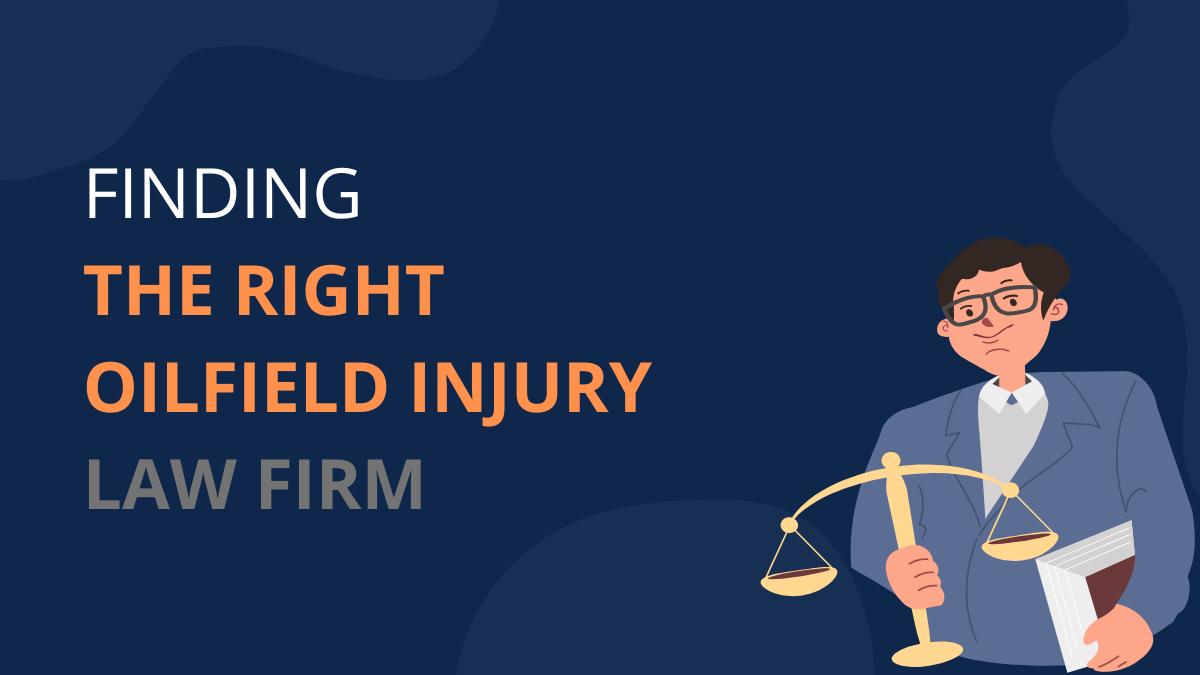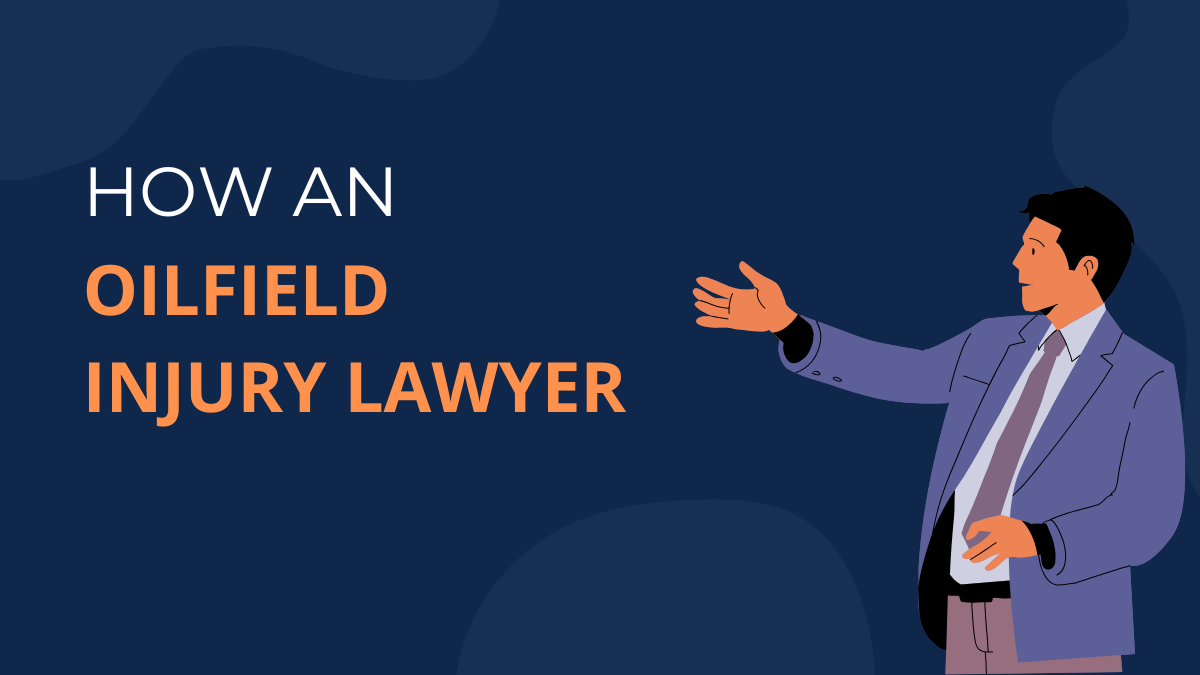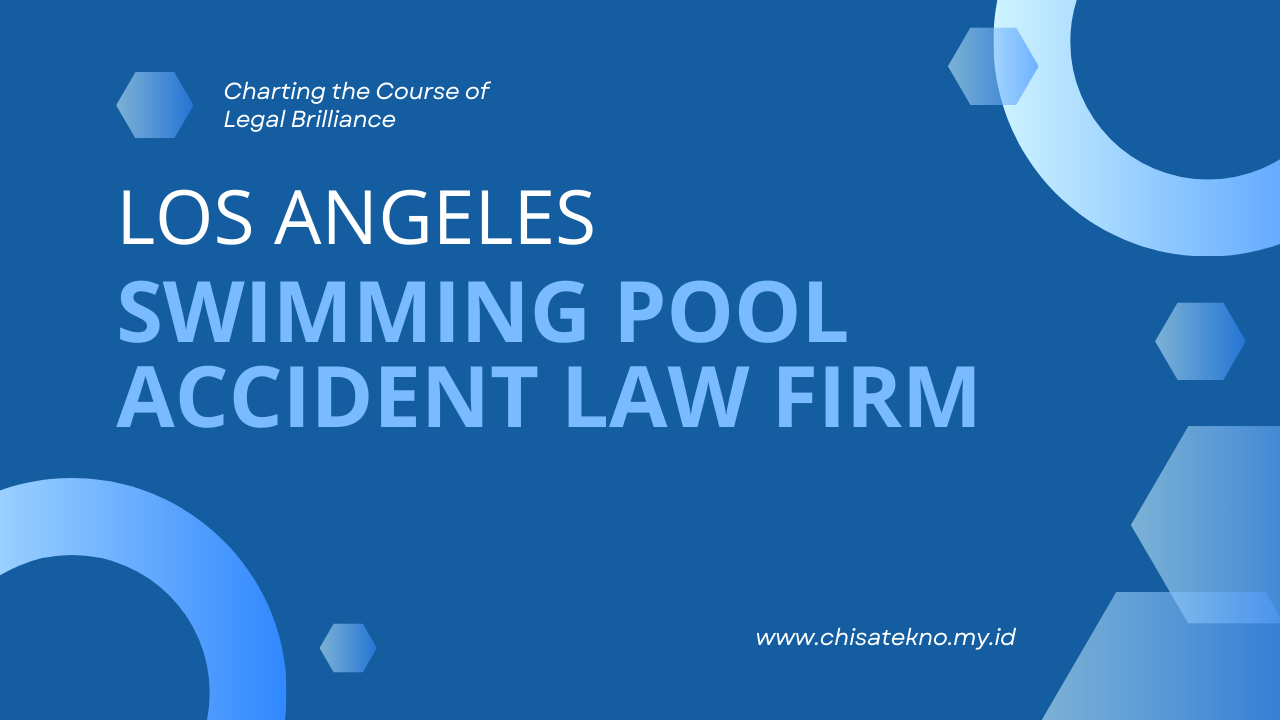Oilfield Injury Law Firm – The oil and gas industry is a vital part of our economy, but it’s also one of the most dangerous. Oilfield workers face a multitude of risks every day, from explosions and fires to falls and equipment malfunctions. If you or a loved one has been injured in an oilfield accident, it’s crucial to seek legal representation from an experienced oilfield injury law firm. This guide will help you understand the complexities of oilfield injury law and find the right legal advocate for your situation.
Understanding the Dangers of Oilfield Work
Oilfield work is inherently hazardous. Workers are exposed to a variety of risks that can lead to serious injuries or even death. Some of the most common dangers include:
- Heavy Machinery and Equipment: Oilfield workers operate and maintain a wide range of heavy machinery and equipment, such as drilling rigs, pumps, and pipelines. These machines can be dangerous if they are not properly maintained or operated.
- Hazardous Materials: Oil and gas extraction involves the use of hazardous materials, such as flammable liquids, toxic gases, and radioactive materials. Exposure to these materials can cause serious health problems.
- Dangerous Working Conditions: Oilfield workers often work in remote locations with harsh weather conditions. They may also be required to work long hours and perform physically demanding tasks.
Common Types of Oilfield Injuries
The types of injuries that can occur in an oilfield accident are varied and often severe. Some of the most common include:
- Burns: Fires and explosions are a common hazard in the oilfield, and workers can suffer severe burns as a result.
- Broken Bones and Fractures: Falls from heights, being struck by objects, and equipment malfunctions can all lead to broken bones and fractures.
- Head Injuries: Head injuries can occur from falls, being struck by objects, or explosions. These injuries can range from mild concussions to traumatic brain injuries.
- Spinal Cord Injuries: Spinal cord injuries can result from falls, vehicle accidents, or being crushed by equipment. These injuries can lead to paralysis or other permanent disabilities.
- Amputations: Workers can suffer amputations as a result of being caught in machinery or being struck by objects.
- Exposure to Toxic Substances: Exposure to chemicals and other hazardous materials can cause a variety of health problems, including respiratory problems, cancer, and neurological damage.
It’s important to remember that these are just some of the most common types of oilfield injuries. Any type of accident in the oilfield has the potential to cause serious harm.
Data and Statistics:
- According to the Bureau of Labor Statistics, the oil and gas extraction industry has a fatality rate that is seven times higher than the average for all industries.
- In 2020, there were 121 fatalities in the oil and gas extraction industry.
- The most common causes of death in the oil and gas extraction industry are transportation incidents, contact with objects and equipment, and fires and explosions.
The high risk of injury in the oilfield underscores the importance of having experienced legal representation if you are involved in an accident. An oilfield injury lawyer can help you understand your rights and options and fight for the compensation you deserve.
What to Look for in an Oilfield Injury Law Firm
Not all law firms are created equal. When your livelihood and well-being are at stake, you need a law firm with a proven track record of success in oilfield injury cases. Here’s what to look for:
- Experience and Expertise: The firm should have extensive experience handling oilfield injury cases and a deep understanding of the industry’s unique challenges and regulations. Look for lawyers who are knowledgeable about OSHA regulations, industry safety standards, and the specific hazards involved in oilfield work.
- Resources and Reputation: Complex oilfield injury cases can require significant financial resources to investigate thoroughly and litigate effectively. The firm you choose should have the financial stability and resources to take on large opponents, like oil and gas companies, and pursue your case to the fullest extent necessary. Additionally, consider the firm‘s reputation in the legal community and among past clients. Online reviews and testimonials can provide valuable insights into the experiences of other injured workers.
- Communication and Compassion: A strong attorney-client relationship is built on trust and open communication. The firm you choose should prioritize clear, consistent communication and keep you informed throughout every step of the legal process. They should be responsive to your questions and concerns and provide compassionate support during this challenging time.
Finding the right oilfield injury law firm can make a significant difference in the outcome of your case. Take the time to research and interview potential firms before making a decision.
Key Considerations:
- Case History: Ask about their experience with similar cases, their success rate, and the average settlement or verdict amount they achieve for their clients.
- Legal Team: Inquire about the size and composition of the legal team that will be handling your case. Will you be working directly with a partner or a less experienced associate?
- Fees and Costs: Understand how the firm charges for its services. Most personal injury lawyers work on a contingency fee basis, meaning they only get paid if you win your case. Clarify the percentage they will take and how expenses will be handled.
By carefully considering these factors, you can find an oilfield injury attorney who is the right fit for you and your specific needs.
How an Oilfield Injury Lawyer Can Help
Navigating the legal complexities of an oilfield injury claim can be overwhelming, especially while you’re recovering from your injuries. An experienced oilfield injury lawyer can provide invaluable assistance throughout the entire process, ensuring your rights are protected and that you receive the maximum compensation you deserve. Here’s how they can help:
Investigating the Accident
A thorough investigation is crucial to building a strong case. Your lawyer will:
- Gather Evidence: This includes accident reports, witness statements, photographs, videos, and any other relevant documentation.
- Interview Witnesses: They will interview witnesses to the accident to get their accounts of what happened.
- Consult Experts: They may consult with experts, such as accident reconstruction specialists and medical professionals, to provide further insight into the cause of the accident and the extent of your injuries.
- Determine Liability: Based on the evidence gathered, your lawyer will determine who is liable for your injuries. This could be your employer, a third-party contractor, or the manufacturer of faulty equipment.
Negotiating with Insurance Companies
Insurance companies are often more concerned with protecting their bottom line than with ensuring you receive fair compensation. Your lawyer will:
- Handle all Communication: They will handle all communication with the insurance company, protecting you from aggressive tactics and unfair settlement offers.
- Negotiate on Your Behalf: They will negotiate with the insurance company to secure a settlement that covers all your damages, including medical expenses, lost wages, and pain and suffering.
- Protect Your Rights: They will ensure that your rights are protected throughout the negotiation process.
Filing a Lawsuit
If a fair settlement cannot be reached through negotiation, your lawyer will file a lawsuit on your behalf. This involves:
- Preparing Legal Documents: They will prepare and file all necessary legal documents, including the complaint and summons.
- Representing You in Court: They will represent you in all court proceedings, including depositions, hearings, and the trial.
- Presenting Evidence and Arguments: They will present evidence and arguments to support your case and fight for the best possible outcome.
Providing Ongoing Support
Beyond the legal aspects of your case, your oilfield injury attorney will also provide ongoing support and guidance, such as:
- Answering Your Questions: They will answer your questions and address your concerns throughout the legal process.
- Connecting You with Resources: They can connect you with resources and support services to help you with your recovery and rehabilitation.
- Guiding You Through the Process: They will guide you through the often complex and confusing legal process, ensuring you understand your options and make informed decisions.
By having an experienced oilfield injury law firm on your side, you can focus on your recovery while they handle the legal complexities of your case.
Questions to Ask a Potential Oilfield Injury Lawyer
Choosing the right oilfield injury law firm is a critical decision. To ensure you’re making an informed choice, it’s essential to ask potential lawyers the right questions. Here are some key questions to consider:
- What is your experience with oilfield injury cases specifically? Don’t just settle for general personal injury experience. Oilfield accidents often involve unique circumstances and regulations, so you need a lawyer with specific expertise in this area.
- How many cases have you successfully litigated? Ask about their track record of success in similar cases. What were the outcomes? What were the average settlement amounts or jury verdicts?
- What are your fees and how do you charge? Most personal injury lawyers work on a contingency fee basis. Clarify what percentage of the settlement or verdict they will receive and how expenses will be handled.
- Who will be my primary point of contact? Will you be working directly with the lawyer you’re interviewing, or will a paralegal or associate be handling most of the communication?
- What is your communication style and how often will I receive updates? It’s important to have a lawyer who communicates clearly and keeps you informed about the progress of your case.
- What are the potential outcomes of my case? Every case is different, but an experienced lawyer should be able to provide you with a realistic assessment of the potential outcomes based on the facts of your case.
- How long will it take to resolve my case? Again, this varies depending on the complexity of the case, but your lawyer should be able to give you a general timeline.
Don’t be afraid to ask tough questions. You’re entrusting this lawyer with your case and your future, so it’s important to feel confident in their abilities and comfortable with their communication style.
Additional Resources for Injured Oilfield Workers
In addition to seeking legal representation from an oilfield injury law firm, there are several other resources available to injured oilfield workers. These resources can provide financial assistance, medical care, and emotional support during your recovery.
Workers’ Compensation Benefits
Workers’ compensation is a state-mandated insurance program that provides benefits to workers who are injured on the job. These benefits can help cover medical expenses, lost wages, and rehabilitation costs.
- Eligibility Requirements: To be eligible for workers’ compensation benefits, you must be an employee who was injured while performing your job duties.
- Benefits Available: The specific benefits available vary by state, but they typically include medical expenses, lost wages, and vocational rehabilitation.
- Filing a Claim: To file a claim, you will need to notify your employer of your injury and file a claim with the state workers’ compensation agency.
OSHA Regulations for Oil and Gas Extraction
The Occupational Safety and Health Administration (OSHA) sets safety standards for the oil and gas extraction industry. These regulations are designed to prevent workplace accidents and protect workers from hazards.
- Safety Standards: OSHA standards cover a wide range of topics, including hazard communication, personal protective equipment, machine guarding, and fall protection.
- Employer Responsibilities: Employers are responsible for providing a safe workplace and complying with OSHA regulations.
- Worker Rights: Workers have the right to a safe workplace and to report safety concerns without fear of retaliation.
Support Groups and Organizations
There are several support groups and organizations that can provide assistance to injured oilfield workers. These groups can offer emotional support, practical advice, and connections to resources.
- National Organizations: The National Safety Council and the American Association for Justice are national organizations that provide resources and support to injured workers.
- Local Support Groups: Many communities have local support groups for injured workers. These groups can provide a sense of community and connection with others who have experienced similar challenges.
Remember: You are not alone. There are resources available to help you through this difficult time.
Conclusion
Oilfield accidents can have devastating consequences, leaving workers with serious injuries, emotional trauma, and financial burdens. If you or a loved one has been injured in an oilfield accident, it’s crucial to seek legal representation from an experienced oilfield injury law firm.
Remember, time is of the essence. There are statutes of limitations that restrict the amount of time you have to file a claim. Don’t delay in seeking help. An oilfield injury attorney can:
- Investigate the accident thoroughly
- Determine liability
- Negotiate with insurance companies
- File a lawsuit if necessary
- Fight for the maximum compensation you deserve
By taking the first step and contacting an oilfield injury law firm today, you can begin the journey toward justice and recovery. You don’t have to face this challenge alone.
Disclaimer: This blog post is intended for informational purposes only and does not constitute legal advice. It is essential to consult with an experienced oilfield injury lawyer to discuss the specific facts of your case and determine the best course of action.




